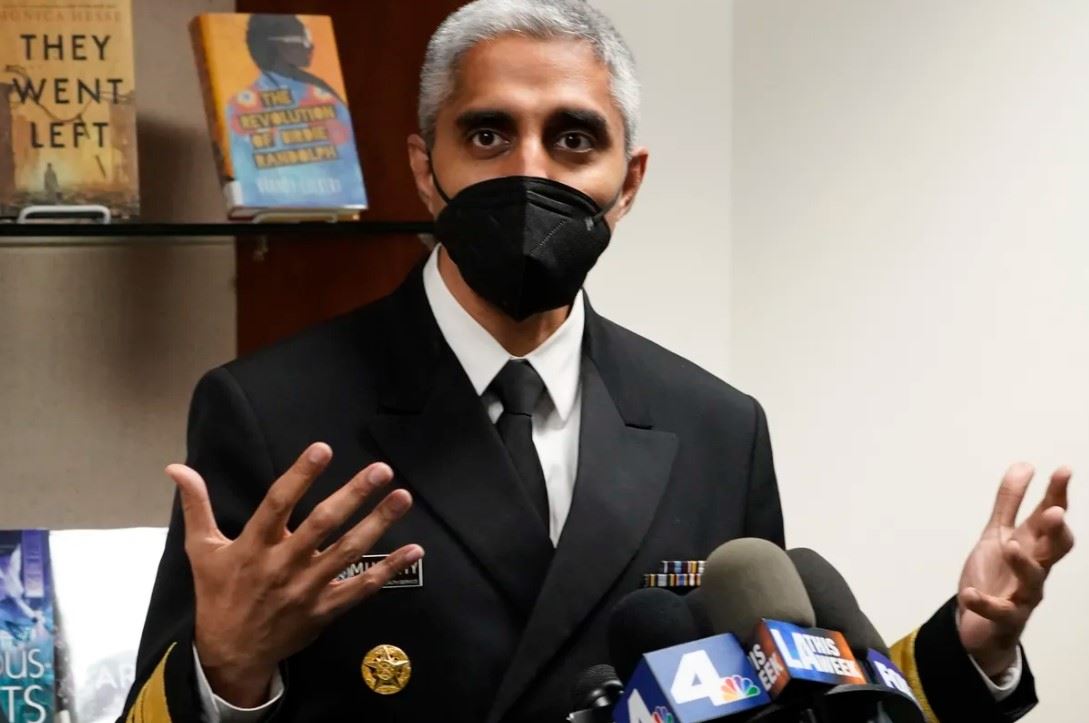 U.S. Surgeon General Vivek H. Murthy recently released a powerful report on how we can better address youth mental health. It’s time we paid more attention here in Illinois because the consequences of ignoring the growing crisis can be dire, particularly for marginalized communities that face unequal access to treatment. Without proper treatment, young people can face a lifetime of spiraling difficulties and disabilities. Our lawmakers must take decisive action. [Chicago Sun-Times 12.22.2021]
U.S. Surgeon General Vivek H. Murthy recently released a powerful report on how we can better address youth mental health. It’s time we paid more attention here in Illinois because the consequences of ignoring the growing crisis can be dire, particularly for marginalized communities that face unequal access to treatment. Without proper treatment, young people can face a lifetime of spiraling difficulties and disabilities. Our lawmakers must take decisive action. [Chicago Sun-Times 12.22.2021]
Download report on youth mental health here.
Even pre-pandemic, the trends in young people’s mental health needs were troubling. According to the report, between 2009 and 2019, the number of high school students reporting constant feelings of sadness or hopelessness increased by 40%, and suicidal behavior increased by 44%. During the pandemic, the number of young people experiencing depression and anxiety doubled. Last year, the National Center for Health Statistics estimated over 6,600 deaths by suicide among this group.
Opinion
As U.S Surgeon General Murthy put it, “This is the moment to demand change, with our voices and with our actions.”
Youth ages 16-26 are often caught between services tailored specifically to either younger children or adults, with neither serving them well. This group has unique needs as they navigate the transition to adulthood, and they require distinctive treatment models. For this reason, the Surgeon General separates children from young adults in his report. Serious mental health conditions are most likely to begin in this age range, yet young adults are least likely to seek help.
In addition, the onset of conditions like schizophrenia and schizoaffective disorder often begins in young adulthood, requiring early intervention to prevent a lifetime of disability. Recognizing the signs of psychosis and connecting young people to the right services as early as possible can make a lifelong difference. Too often, families are sent through years of revolving doors before finding help. According to a Duration of Untreated Psychosis study, the average time from onset of psychosis to receiving treatment for a young person is 74 weeks.
Research shows the earlier we intervene, the better chance young people have of getting back on track. A few mental health nonprofits provide that critical early intervention for young adults. Thresholds’ Youth & Young Adult Services has pioneered life-changing, team-based care to address and prevent long-term mental health needs in young adults. However, further investment is needed to support these programs.
How Lawmakers Can Help
The Surgeon General’s report speaks to the effectiveness of a multi-disciplinary team to support the complex needs of young people and their families. This approach is used in dozens of other states to engage young adults in life-altering services. Isn’t it time for Illinois to step up?
In 2018, the Illinois General Assembly passed the Early Mental Health & Addictions Treatment Act. The act requires the state’s Medicaid program to develop a treatment model specifically aimed at the needs of older teens and young adults at the start of serious mental health conditions. It also recognizes the need for young adult-tailored services. However, implementation of this act has yet to begin.
Illinois lawmakers also need to address a workforce shortage in the mental health sector. The few programs that exist struggle to retain staff. People are often placed on long wait lists, leading to hospital visits that have inadequate capacity for the increased demand. Providers need increased Medicaid rates and payments to compensate staff, attract new talent, and expand services to meet demand. Majority Leader Greg Harris is championing legislation (HB4238) to inject $130 million to address the staffing crisis.
We urge Illinois policymakers to meet the Surgeon General’s call to action. We know that with the right investment, we can address the mental health crisis in a generationally impactful way.
Marc Fagan is vice president of Clinical Operations and Youth Services at Thresholds and is a licensed clinical psychologist.
Check IOMC's website for its upcoming virtual session on Mental Health and Suicide Crisis which will be held in February 2022.
###
